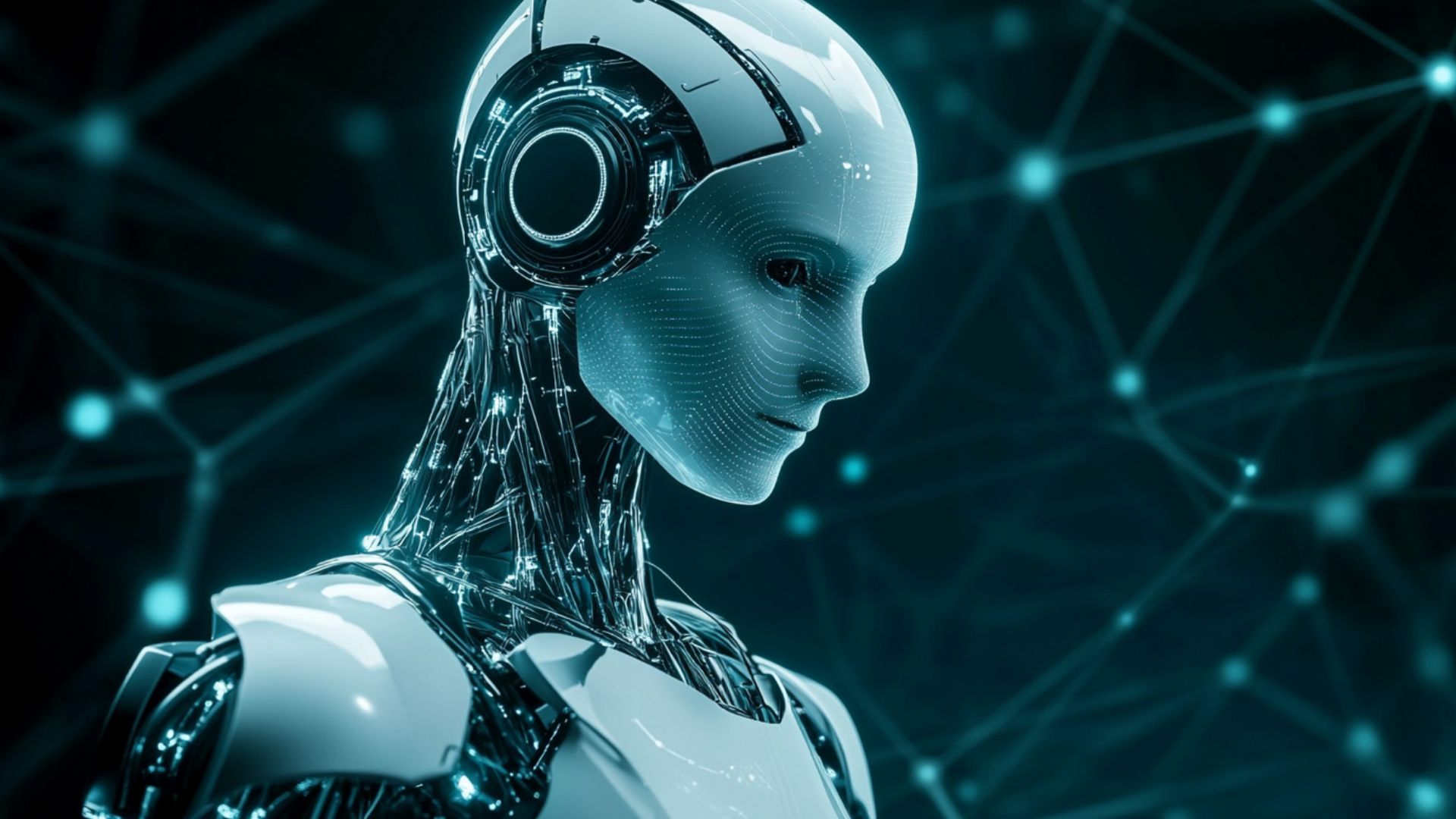Automating Customer Service: How AI Is Redefining Client Interactions

In the vigorous era, automated customer service has appeared as a pivotal force. It's changing the way enterprises engage with their patrons. At the forefront of this transformation is AI. It's a powerful tool that is redefining consumer relations. This approach, driven by AI and digital workers, introduces a cohesive and farseeing guideline to anticipate buyer requirements. This paradigm shift not only simplifies procedures but also enhances the general encounter. With the advantages of automated customer service, corporations are discovering unprecedented responsiveness. This evolution signifies a departure from traditional models. It is propelling organizations toward a brighter future. Client dealings will be characterized by agility and personalization. The incorporation of this innovation promises not just a technological upgrade. It is all about a fundamental reimagination of customer-business connections.
The Rise of Automated Customer Service
Automated Customer Service emerges as an innovative strategy for fulfilling buyer specifications. This inventive approach involves leveraging cutting-edge technologies. The shift from classic consumer assistance methods to robotic systems marks a transformative journey for many. In the past, firms relied heavily on human-centric approaches. They, while effective, often faced challenges in scalability and speed.
The advent of this new methodology ushers in a new era. Here, routine tasks are seamlessly managed by intelligent systems. It allows workers to concentrate on more intricate and strategic aspects of client engagement. This evolution not only augments work routine improvement. It also ensures that patrons benefit from a more immediate and tailored exchange. It's definitely shaping the trajectory of the modern automated customer experience. Many niches increasingly embrace this method. Now, they position themselves at the forefront of a customer-centric paradigm. We're poised to meet the emerging expectations of a digital-savvy consumer base.
Enhancing the Customer Experience with Automation
At its core, Automated Customer Experience contains computerized procedures and intelligent designs. They refine various connection spots in the client assistance efforts. Through the utilization of digitization, enterprises achieve a trifecta of advantages. These are efficiency, stability, and customization.
It is managing regular responsibilities in a quick and precise way. Consistency arises from the standardized application of techniques. It lessens the likelihood of errors. That confirms a uniform holistic channel engagement. Moreover, the real magic lies in its capacity to deliver exceptionally bespoke connections. It exemplifies a profound understanding of individual needs and likings.
Consider the following automated customer service examples. Special email campaigns that are triggered by specific patron behaviors. AI-driven chatbots that offer instant and context-aware help. We'll discuss these innovations in more detail below. Each of these examples showcases how automation optimizes operational aspects. Also, it fosters buyer devotion and well-being.
Real-World Examples of Automated Customer Service
This strategy has transcended the realm of theory. It became a tangible force driving improved client interactions across diverse industries. Multiple niches utilize this methodology from e-commerce giants to the finance sector. In these automated customer service examples, we'll describe how these systems provide different practical solutions.
E-commerce Giants
E-commerce platforms employ computerized techniques to provide people with real-time updates. These include their order status, shipping details, and delivery estimates. This preemptive action enhances transparency. It keeps buyers informed, leading to boosted contentment.
Banking and Finance
Banks and financial institutions deploy AI-driven chatbots to handle routine queries. These are funds overview, dealing histories, and fund transfers. These chatbots deliver direct aid. They provide continuous aid and free up human agents for more intricate financial matters.
Travel and Hospitality
Travel agencies also supply automated customer service. They employ these techniques to facilitate booking procedures. Mechanization decreases the likelihood of mistakes and accelerates the booking venture. From hotel reservations to flight bookings. It guarantees hassle-free dealings.
Telecommunications
Telecommunication firms grant people with DIY portals. You can apply them for tasks like bill payments, plan upgrades, and account management. Mechanization in these procedures boosts convenience. It allows buyers to handle their services independently. That reduces the need for direct client care.
Healthcare Industry
Healthcare providers implement these techniques in many aspects. These are scheduling appointments, sending reminders, and managing patient information. This helps to simplify administrative tasks. It also guarantees patients receive timely and individualized feedback.
Advantages of Automated Customer Service

The adoption of new products has ushered in a revolution in the realm of buyer assistance. The myriad advantages of automated customer service take center point. This process is not just a trend but a strategic necessity. From securing 24/7 availability to granting scalable resolutions for a growing clientele. We'll delve into how data handling and analysis are revolutionized. Also, we'll shed light on the impact of unique responses on consumer fulfillment. Join us in investigating the numerous pros it has.
- 24/7 Availability. In accordance with a survey by HubSpot, 90% of patrons anticipate a "prompt" reply to their questions. Computerized systems supply round-the-clock availability. It guarantees timely guidance and meets the growing demand for on-the-spot aid.
- Scalability. As reported by McKinsey, firms that adopt this method encounter a 10-15% reduction in service costs. It enables firms to handle a growing client base without proportional increases in staffing.
- Data Handling and Research. Conforming to Salesforce, 67% of support staff believe they're now expected to deliver more detailed explanations. This strategy allows one to proficiently tackle and scrutinize extensive amounts of buyer info. It empowers companies to glean actionable insights for more targeted decisions.
- Cost Efficiency. Research by Aberdeen Group indicates that companies utilizing automated customer service experience a 29% year-over-year decrease in expenses. Mechanization optimizes operations and lowers hand-operated duty load. That subsequently, leads to lower functional costs.
- Tailored Replies. A study by Accenture found that 91% of consumers are more likely to shop with brands that deliver applicable deals and advice. Robotic solutions leverage data to deliver individualized reactions. It fosters a deeper connection with patrons.
- Speed. According to Forrester, 73% of people say that placing a high value on their time is the finest thing a firm can accomplish to give exemplary service. Computarization expedites buyer dealings. It guarantees fast feedback and sufficient query resolution.
- Multichannel Support. A report by Zendesk reveals that multi-platform support gives a 39% growth in satisfaction. These systems easily manage questions on various platforms. That delivers a consistent and cohesive background.
The Role of the Digital Worker in Customer Support
The emergence of the "Digital Worker in Customer Support" has reshaped how industries engage with their clientele. Unlike basic computerized techniques, a digital worker is an advanced form of artificial intelligence. It can handle a scale of sophistication that goes beyond standard mechanization.
Learning Capacity
The first point is their ability to learn. Traditional designs operate based on pre-programmed rules. They follow a set of predetermined instructions. They can't learn from new data or occasions.
In contrast, AI digital workers have algorithmic machine intelligence. They can evaluate patterns, interactions, and feedback. It lets them adapt and improve over time.
Adaptability
Basic mechanization is rigid and may struggle to manage cases outside the designated range of rules. It lacks the flexibility to adapt to new situations or unexpected changes.
Digital workers can adjust their responses and actions based on context. They're learning from novel situations. Then they change their course to supply more practical solutions.
Handling Complexity
Traditional methods are suitable for handling routine and repetitive tasks. Yet, they could face adversity when encountering unique buyer interrogations that require deep knowledge.
Digital workers in customer support excel in handling difficult duties. Their cognitive capacities enable them to interpret the situation and decipher intent. This makes them perfect for dealing with a diverse array of concerns.
Conclusion
The incorporation of smart support solutions marks a profound shift in how firms navigate client relations. As we embrace the era of automated customer service, it becomes clear that it is not merely a technical upgrade. It's a catalyst for redefining the very nature of client-business relationships. The advantages of this technique underscore its indispensable role in meeting the demands of a digital-savvy patron base. This evolution empowers workers to highlight high-value collaborations that demand empathy and originality. The real-world examples demonstrate how firms in diverse sectors are applying these strategies.
The landscape of buyer interactions is poised for further transformation. It's promising a future where assistance is profoundly user-centric. This course is laying the foundation for sustained triumph in the dynamic corporate sphere.


